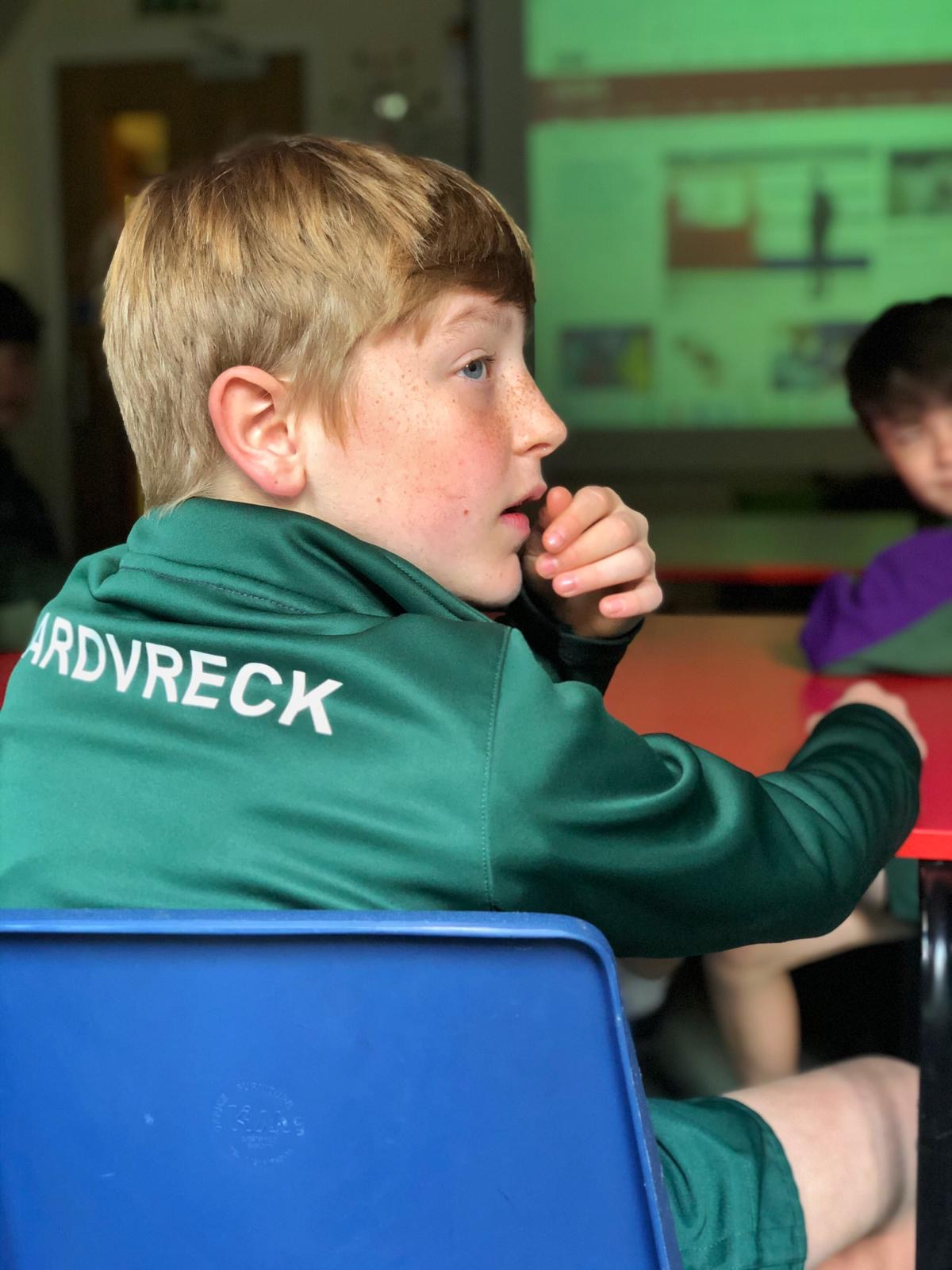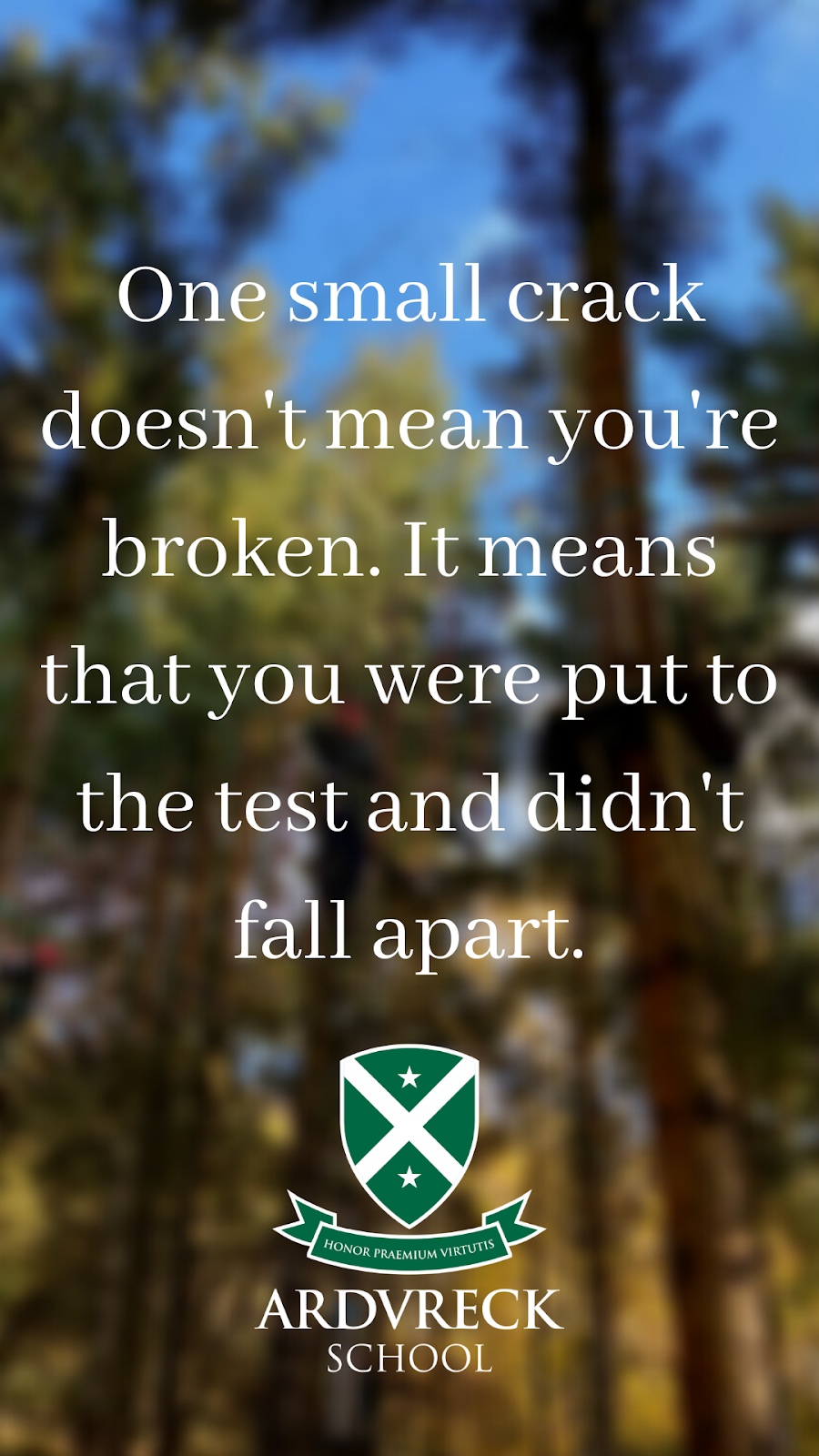Resilience: the ability to cope mentally or emotionally
.jpg)
By Sarah Mannion
In my 25 years of teaching, many things have changed – but the one thing that crops up more and more is how to ensure the wellbeing of children. Wellbeing covers many things, but ‘resilience’ – which plays a large part – is really important and is something that we, at Ardvreck, value very highly. With resilience, some of our past pupils have gone on to conquer some of the world’s highest mountains, win medals in the olympic games and set up successful businesses all over the world. They are the adventurous ones, the workers, the passionate ones, the thinkers, the do-ers. Without resilience there is fear of failure, lack of confidence, unwillingness to try without support and no long term drive or persistence towards reaching a goal. There is no ability to ‘cope’ when the going gets tough.
So what do we need to do to help our children become resilient and to survive the tough times: the times when they feel they have no friends; the teachers are nagging; the learning is too challenging; when they didn’t win that prize … or that part in the play … or place in the team … or get good marks in a test?


By its very nature, life isn’t always easy – and as adults we need to stop ‘stepping in’ and depriving our children of the chance to learn an incredibly important life lesson! We must allow children to find life hard sometimes!
Adults must learn to listen – really listen – but without making judgment – now that’s hard to do! Give children the space to talk about what’s bothering them without interrupting or interrogating them. Pass no comment other than to encourage them to keep talking; nod, or say ‘Yes, I hear you, I am listening’. Acknowledge when you see they are upset. Rather than giving a solution, give them some time to work through what has upset them and to gather themselves back together. Sometimes, a good cry and offloading their feelings can be the best medicine and all they need.
Finally, after a period of distraction – eating something, a good night’s sleep – revisit the discussion and ask if there is anything your child can think of that they could do to make the situation better. Your child. Not you. Let them do the deciding. This will empower them. This is how resilience is developed.
By encouraging your child to accept some responsibility for the part they play in their own life, you teach them to be stronger. You teach them to understand they are not perfect and to accept their own mistakes. As they work things out, true growth and a deeper self-confidence is learned. If we keep intervening on their behalf, we strip them of all self-worth, reinforcing the message they need our help. Surely this is not the message we want to give? Surely we want our children to learn to handle difficult situations?
You are preparing them for the future. For independence. It’s hard to do…but then parenting is hard. Let the children try to face the problem and solve it first – before jumping in.
There will be times when adult intervention is required, but actually, these should be very few. Children learn resilience through knowing they have your full support, that they can run into your arms, cry and pour their hearts out, and know you will listen, understand, and love them. They do not learn it if you take over and ‘fix’ everything for them right away.
They learn resilience as you gently stand them up, dust them down and encourage them to get back out there to face the world with their head held high. Children do not learn resilience by having everything done for them, being told they are perfect, or that they are simply the best and can do no wrong. This prevents all growth and development.

Advice: each day brings a change, a growth and something new to be dealt with or discovered. Ardvreck children develop resilience by learning to stand on their own two feet, by trying new things, by not giving up, learning to say sorry, acknowledging mistakes, building relationships and having a team of staff who will guide, encourage and listen to them along the way.
We are fair and understanding. We expect effort. We are all human. We are not perfect
